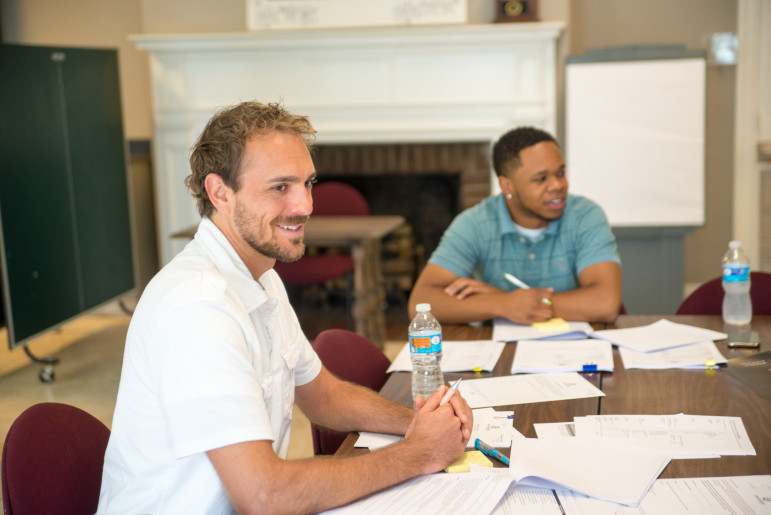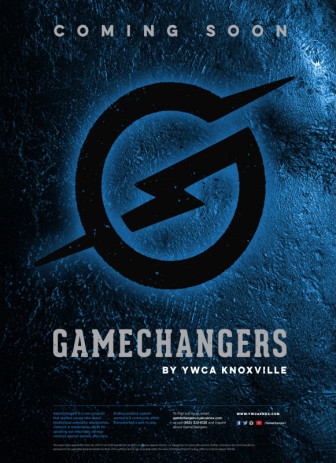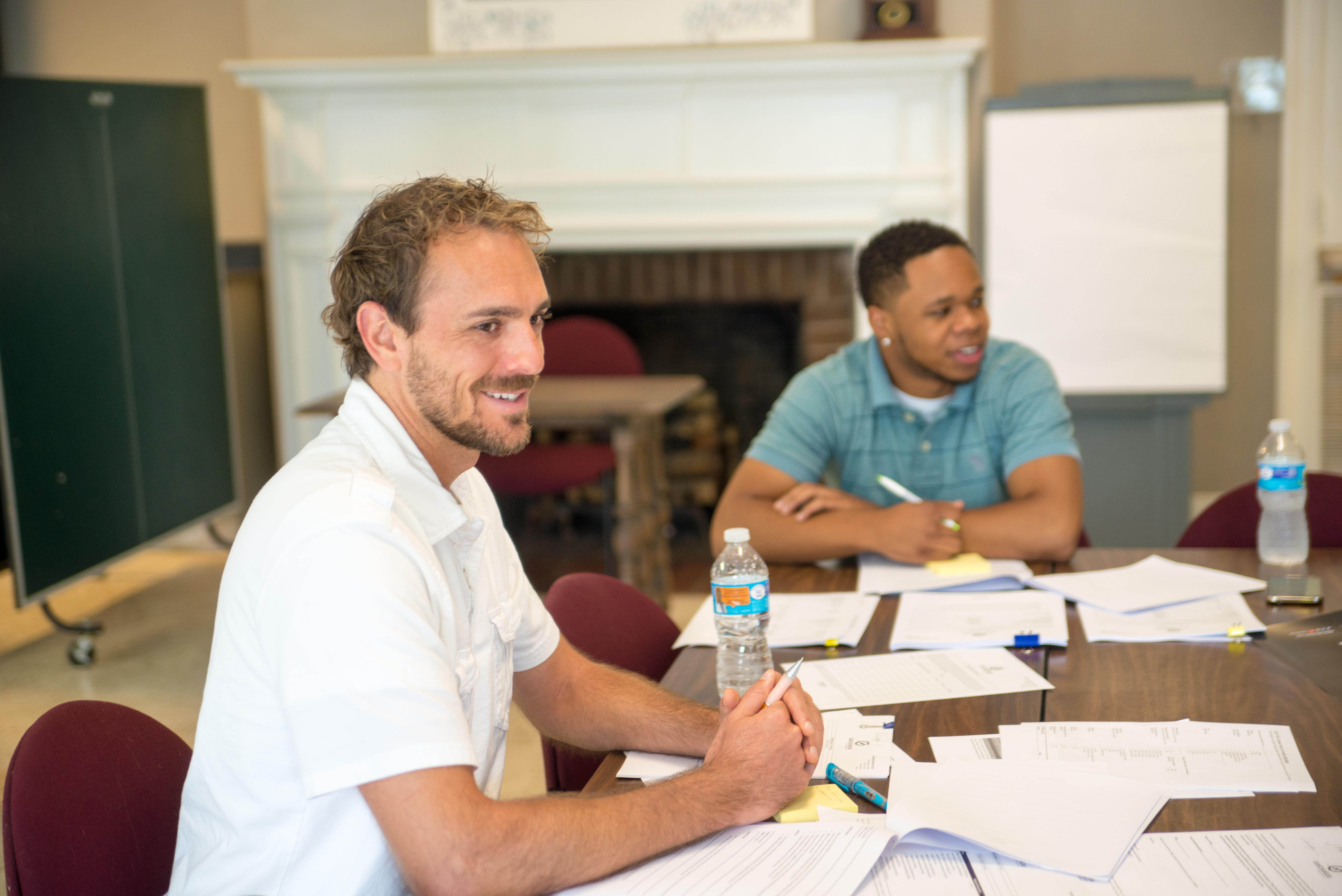
Designsensory
GameChangers, a program of the Knoxville (Tenn.) YWCA teaches boys 11-14 to recognize and oppose dating violence, domestic violence and other violence against women. Here, mentors Chris Cockerille (left) and Chris Whitehead get training to lead a group.
“You can’t change the game until you know how,” the Facebook post asserts.
It’s the Facebook page of GameChangers, a new after-school program for boys ages 11 to 14 developed by YWCA Knoxville (Tenn.).
GameChangers, which began this summer, teaches boys how to recognize dating violence, domestic violence, sexual assault and stalking — and it gives them the skills to speak out when they witness it.
Hannah Brinson, violence prevention project coordinator at the YWCA, spearheaded the creation of GameChangers and wrote the curriculum. The YWCA received a $350,000 three-year grant from the U.S. Department of Justice’s Office on Violence Against Women to develop and implement the program.

Designsensory
A poster for GameChangers, which began this summer, advertises the program that teaches boys how to recognize dating violence, domestic violence, sexual assault and stalking — and gives them the skills to speak out when they witness it.
Last year, YWCA Knoxville served 4,788 clients in its Victim Advocacy Program, which provides services to women who experience domestic violence. It also offers programming for youth.
“We had a passion for combining those two things,” Brinson said.
GameChangers began this summer in partnership with Big Brothers, Big Sisters of East Tennessee.
Boys meet in groups of three to 10 with two adult male mentors for 1½ hours each week for 17 weeks, Brinson said.
The adult leaders introduce information and lead discussions. Boys are encouraged to think critically and express their ideas, she said. A half-hour is devoted to active recreation.
Society gives young men a lot of messages about masculinity that contribute to violence against women, Brinson said.
“We want to create a culture shift in the way we view violence against women and in how we teach young men to be men,” she said.
The Y is also partnering with the Emerald Youth Foundation, 100 Black Men of Greater Knoxville and the Knoxville Area Urban League in the project.
This fall, Brinson expects to have an additional 25 boys in three groups. One group will be at the YWCA’s after-school program and two groups at the Emerald Youth Foundation, a local faith-based organization.
[Related: Young Women Organize Around Day of the Girl to Highlight Issues]
A design and marketing firm created materials that would appeal to middle school boys — particularly to their sense of independence and interest in justice, Brinson said. For example, one piece of promotional material was designed in the style of a blockbuster movie poster.
Brinson wants to have an evidence-based curriculum in six months, she said.
GameChangers will be evaluated using a survey developed in conjunction with David Dupper of the University of Tennessee College of Social Work. Kids will be surveyed upon entry into GameChangers and upon completion of the program to measure changes in their understanding and their willingness to act in response to violence.
Brinson wants to make the program available to youth-serving organizations nationally.
YWCA Knoxville CEO Marigail Mullin said: “As we looked at preventive education programs [around violence against women], we noticed there were no efforts to engage adolescent boys.”
Brinson wants to fill this gap.
“Our hope is that by reaching a younger population, we can challenge the culture of violence against women and create a new standard of behavior as these boys move from middle school to high school and into adulthood,” she said.
More articles related to this one:
How to Tell If Child’s Sexual Behavior Is Age-appropriate
Youth Voices: I Couldn’t Save My Mom
Opinion: Victim Blaming and the Reality of Sexual Violence


























